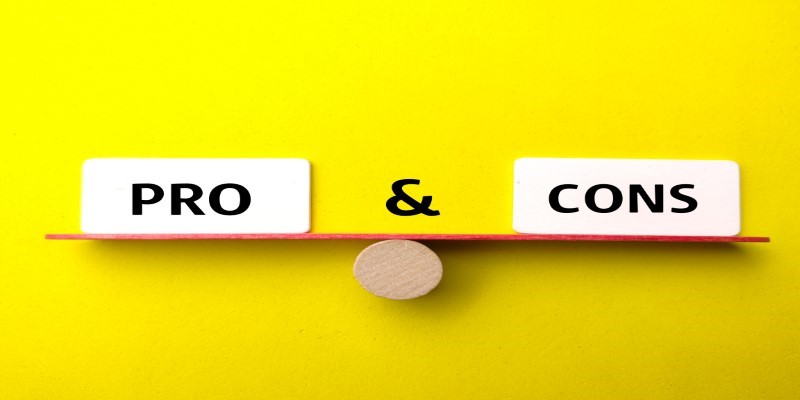A Guide on What Is a Credit Freeze and All that You Should Know About It
Dec 12, 2023 By Susan Kelly
For someone who has credits on their name or is now stepping into the credit world, it is essential to have proper know-how on all the different vocabulary related to this particular world. If you are on the same path, and today you want to learn about one of the most popular terms used in the credit world – credit freeze, then let us tell you that you have landed on the right page. Hop on below to learn about what credit freeze is and several aspects related to it.
What is Credit Freeze?
A credit report is a report that your lender or credit provider would review when you apply for debt or loan. This report basically ensures that the person applying for debt or loan can handle the amount quickly. However, when you initiate a credit freeze – also called a security freeze – on your report, it restricts the lender from accessing your credit scores.
You must be thinking about what good it brings because when a lender cannot see your credit report, they are more likely to deny your loan application, right? Well, the purpose of this freeze is to prevent theft frauds, in case you sense one, basically. People who believe that their credits are being mishandled or are in potential threat of being stolen get their credits frozen to prevent the thief from accessing their credits and opening new loans or lines of credit falsely with your name on them.
Pros and Cons of Credit Freeze

Now that you understand what a credit freeze is, we are sure you'd be wondering whether getting one at a time of potential threat is a good idea or if you should look into alternatives. Well, this pros and cons list will help you quickly make up your mind about it.
Pros
- Freezing credits prevent thieves from opening fraudulent credit accounts in your name.
- A freeze gives you peace of mind, knowing that your credit report is safe and inaccessible for any illegal happenings to occur.
- The freeze doesn't impact your overall credit score, which is a relief for many.
- Freezing can, at times, help you not apply for new credit cards impulsively, too.
- Freezing your credits doesn't require any cost.
Cons
- It isn't guaranteed to be 100% effective.
- You will need to contact three major credit bureaus to ensure that your freeze commences and answer their questions. This can be nerve-wracking for many.
How to Freeze Your Credits?

As mentioned above, in order to commence with your credit freeze, an individual will have to contact each of the three major credit bureaus. These three bureaus are Equifax, Experian, and TransUnion. Here is how you can contact each:
- Equifax: Call the bureau at 800-349-9960 or go online and check out a step-by-step guide on Equifax credit freeze.
- Experian: You can either carry out the freeze process online or call their number: 888-397-3742.
- TransUnion: Call 888-909-8872 or check out the process on the website.
It is essential to freeze the credit reports at three major bureaus, which should be your priority. However, for your safety, if you want to go the extra mile, users can also freeze their credit report through two lesser-known credit bureaus that hold information about you:
- Innovis: Call 886-712-4546 or go online.
- National Consumer Telecom and Utilities Exchange: Call 866-349-5355 or check online.
While knowing where to freeze your credits is essential, it is not the only information that you should know about. In fact, understanding all information or documentation that you might need to freeze your credit in all three major bureaus and even the smaller ones is highly essential. Lucky for you, we have this aspect covered for you as well.
What Do you Need to Freeze your Credits?
It is essential for the person who wants to implement the freeze to ensure that they have all the required documents gathered before they make their way to the major bureaus. This will help you initiate a credit freeze quicker and much more easily. Though all three significant bureaus require slightly different documents and requirements, we have concluded a general list of required information below:
- Social security number
- Date of Birth
- Address
There are several ways to initiate a credit freeze: by phone, by mail, or online. The way through which you commence your credit freeze would determine the need for the following documentation:
- Copy of your passport, military ID, and driver's license.
- Copy of your bank statements, recent utility bills, and tax documents.
- A proof of your address of residence.
If you freeze your credit through the phone, the person on the line will ask you some authentication questions as well. So, be prepared to answer those. When your credit freeze is implemented, all your credit files will be secured until you decide to lift the freeze from your credits.
Conclusion
If you are someone who was out on a hunt to understand what a credit freeze is and all other aspects related to it, then we hope this article was helpful for you. While the overall process and this entire concept might seem difficult to some people upon reading, this certainly is not the case. In fact, the credit freeze process is very easy and can be carried out in just a few simple steps. However, this doesn't mean it is not crucial, and one should always have enough understanding of what they are getting themselves into when opting for a credit freeze.

How to Spot Personal Loan Scams: Tips and Tricks

Rewards From Dividend Reinvestment Programs

The Dollar Peg: How It Works and Why It's Done?

Review on Rent-to-Own

How to Battle Bullying in the Workplace: Tips and Strategies

When is the best time to buy insurance?

General Collateral Financing Trades

Detailed Guide on How to Transfer American Express Points to Delta

How to Refinance Student Loans The Complete Guide
